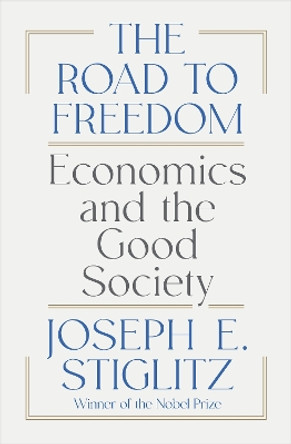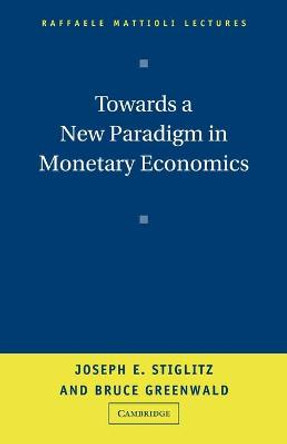Description
Introducing a paradigm for economic growth theory that will revolutionize national and international policy.
About the Author
Joseph E. Stiglitz is University Professor at Columbia University and a member and former chair of Columbia University's Committee on Global Thought. He was the winner of the 2001 Nobel Prize for Economics. He served on President Clinton's Council of Economic Advisors, and then joined the World Bank as chief economist and senior vice president. His most recent book is The Price of Inequality: How Today's Divided Society Endangers Our Future. Bruce C. Greenwald is Robert Heilbrunn Professor of Finance and Asset Management at Columbia Business School. He is director of the Heilbrunn Center for Graham and Dodd Investing. His books include Value Investing: From Graham to Buffett and Beyond and Competition Demystified: A Radically Simplified Approach to Business Strategy Portfolio.
Reviews
Profound and dazzling. In their new book, Joseph E. Stiglitz and Bruce C. Greenwald study the human wish to learn and our ability to learn and so uncover the processes that relate the institutions we devise and the accompanying processes that drive the production, dissemination, and use of knowledge. The authors' analysis provides the foundations of an understanding of the progress and regress of nations. This is social science at its best. -- Partha Dasgupta, University of Cambridge An impressive tour de force, from the theory of the firm all the way to long-term development, guided by the focus on knowledge and learning. Indeed, when economic theory takes knowledge on board-with its specific features and modes of accumulation-many of the conventional conclusions break down, from the welfare properties of competitive markets to the virtues of 'comparative advantages' in international exchanges. At the same time, in learning economies, public policies and institutions are shown to play a paramount role. This is an ambitious book with far-reaching policy implications. -- Giovanni Dosi, Director, Institute of Economics, Scuola Superiore Sant'Anna If one's attention is on the economic long run and the processes involved in economic change, innovation and learning quickly can be seen as occupying the center of the stage. Unfortunately, for the last half century, the bulk of the attention in microeconomic theorizing has been on economic statics, which is blind to these variables. This book is a welcome exception. -- Richard R. Nelson, Columbia University Joseph E. Stiglitz and Bruce C. Greenwald have contributed a superb new understanding of the dynamic economy as a learning society, one that goes well beyond the usual treatment of education, training, and R&D. This important work continues the quest of Stiglitz and Greenwald for an appreciation of the role of public policy in overcoming market failures, asymmetries, and inefficiencies, and it provides insights on the limits and distortions of laissez-faire assumptions of optimality. This book should be at the very center of the next wave of policy debate. -- Robert Kuttner, coeditor, The American Prospect [A] sweeping work of macroeconomic theory. -- Walter Frick Harvard Business Review
Awards
Winner of Columbia University Press Distinguished Book Award 2016. Commended for PROSE Awards in Economics 2015.
Book Information
ISBN 9780231152143
Author Joseph E. Stiglitz
Format Hardback
Page Count 680
Imprint Columbia University Press
Publisher Columbia University Press









